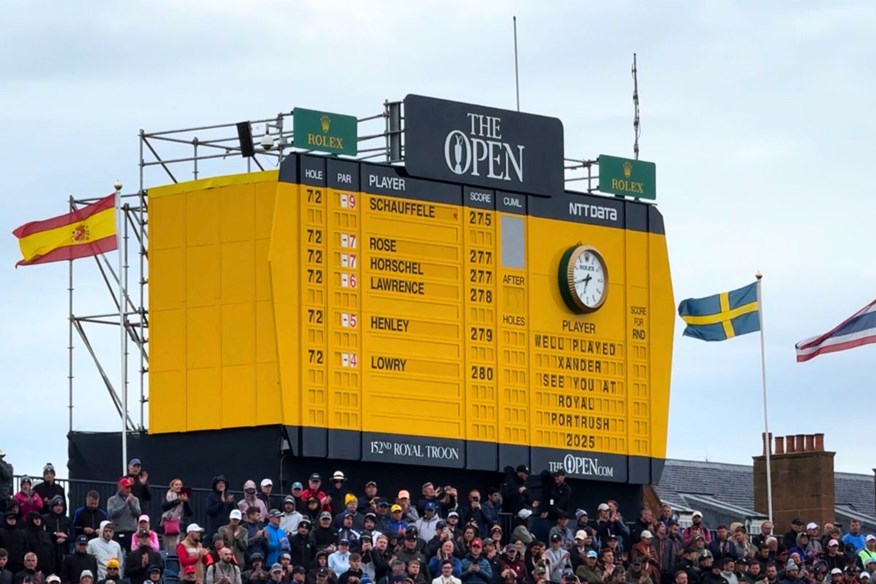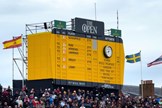What does the 2024 British Open Champion win? Open prize money, ranking points, and more!
Last updated:
What is the prize money on offer at The British Open? And what else does Xander Schauffele receive as Royal Troon’s winner?
Prize money is booming in golf at the moment, and The Open is no exception. Players at golf’s oldest major competed for a record-breaking $17 million at Royal Troon, $500,000 more than in 2023, and $3 million than St Andrews’ bounty in 2022.
Xander Schauffele’s winner’s cheque as the ‘Champion Golfer of the Year’ also bumped up from 2023’s payout to £3.1 million after a jump of $500,000 the year before.
Martin Slumbers, CEO of The R&A, said: “The R&A has a responsibility to strike a balance between maintaining The Open’s position in the global game, providing the funds required for governance, and developing amateur and recreational golf in 146 countries internationally.
“We have to make choices if we want to continue to build on the significant growth in participation that is essential for golf’s future.”
Despite the significant increase in prize money in recent years, The Open still remains the least lucrative major in men’s professional golf behind the US Open – $21.5 million, Masters – $20 million, and PGA Championship – $18.5 million.
2024 Royal Troon Open Championship prize money
Win: Xander Schauffele, -9/275, $3,100,000
T-2: Justin Rose, -7/277, $1,443,500
T-2: Billy Horschel, -7/277, $1,443,500
4: Thriston Lawrence, -6/278, $876,000
5: Russell Henley, -5/279, $705,000
6: Shane Lowry, -4/280, $611,000
T-7: Jon Rahm, -1/283, $451,833.33
T-7: Sungjae Im, -1/283, $451,833.33
T-7: Scottie Scheffler, -1/283, $451,833.33
T-10: Matthew Jordan, E/284, $317,533.33
T-10: Adam Scott, E/284, $317,533.33
T-10: Daniel Brown, E/284, $317,533.33
T-13: Jason Day, +1/285, $248,666.67
T-13: Alex Noren, +1/285, $248,666.67
T-13: Byeong Hun An, +1/285, $248,666.67
T-16: Mackenzie Hughes, +2/286, $202,700
T-16: Collin Morikawa, +2/286, $202,700
T-16: John Catlin, +2/286, $202,700
T-19: Dean Burmester, +3/287, $184,900
T-19: Daniel Hillier, +3/287, $176,200
T-19: Shubhankar Sharma, +3/287, $168,000
T-22: Sepp Straka, +4/288, $151,066.67
T-22: Ewen Ferguson, +4/288, $151,066.67
T-22: Padraig Harrington, +4/288, $151,066.67
T-25: Ryan Fox, +5/289, $124,616.67
T-25: Corey Conners, +5/289, $124,616.67
T-25: Jordan Spieth, +5/289, $124,616.67
T-25: Joe Dean, +5/289, $124,616.67
T-25: Patrick Cantlay, +5/289, $124,616.67
T-25: Laurie Canter, +5/289, $124,616.67
T-31: Guido Migliozzi, +6/290, $90,220
T-31: Eric Cole, +6/290, $90,220
T-31: Cameron Young, +6/290, $90,220
T-31: MK Kim, +6/290, $90,220
T-31: Brendon Todd, +6/290, $90,220
T-31: Matteo Manassero, +6/290, $90,220
T-31: Dustin Johnson, +6/290, $90,220
T-31: Chris Kirk, +6/290, $90,220
T-31: Justin Thomas, +6/290, $90,220
T-31: Sam Burns, +6/290, $90,220
T-41: Kurt Kitayama, +7/291, $70,050
T-41: Matt Wallace, +7/291, $70,050
T-43: Brooks Koepka, +8/292, $57,200
T-43: Thorbjorn Olesen, +8/292, $57,200
T-43: Jorge Campillo, +8/292, $57,200
T-43: Si Woo Kim, +8/292, $57,200
T-43: Max Homa, +8/292, $57,200
T-43: Emiliano Grillo, +8/292, $57,200
T-43: Callum Scott, +8/292, $0 (amateur)
T-50: Matthieu Pavon, +9/293, $45,237.50
T-50: Matt Fitzpatrick, +9/293, $45,237.50
T-50: Richard Mansell, +9/293, $45,237.50
T-50: Robert MacIntyre, +9/293, $45,237.50
T-50: Harris English, +9/293, $45,237.50
T-50: Adrian Meronk, +9/293, $45,237.50
T-50: Gary Woodland, +9/293, $45,237.50
T-50: Sean Crocker, +9/293, $45,237.50
T-58: Joaquin Niemann, +10/294, $42,150
T-58: Abraham Ancer, +10/294, $42,150
T-60: Tommy Morrison, +11/295, $0 (amateur)
T-60: Jeung-Hun Wang, +11/295, $41,325
T-60: Rasmus Hojgaard, +11/295, $41,325
T-60: Jacob Skov Olesen, +11/295, $0 (amateur)
T-60: Phil Mickelson, +11/295, $41,325
T-60: Brian Harman, +11/295, $41,325
T-66: Tom McKibbin, +12/296, $40,280
T-66: Hideki Matsuyama, +12/296, $40,280
T-66: Nicolai Hojgaard, +12/296, $40,280
T-66: Austin Eckroat, +12/296, $40,280
T-66: Davis Thompson, +12/296, $40,280
71: Rickie Fowler, +13/297, $39,700
T-72: Younghan Song, +14/298, $39,233.33
T-72: Marcel Siem, +14/298, $39,233.33
T-72: Tom Hoge, +14/298, $39,233.33
T-75: Darren Clarke, +15/299, $38,525
T-75: Aaron Rai, +15/299, $38,525
T-75: Alex Cejka, +15/299, $38,525
78: Luis Masaveu, +18/302, $0 (amateur)
79: Andy Ogletree, +19/303, $38,400
80: Darren Fichardt, +22/306, $38,275
But with The Open being played in Britain, why is the prize money listed in dollars? Up until 2016, it was always listed in pounds sterling but this changed to US dollars in 2017 because it’s the most widely adopted prize currency in golf.
What else does The Open winner get?
The Open champion receives a lot more than just a very large cheque.
First and foremost the winner becomes a Major (or multiple Major) champion and the winner of the oldest Major Championship in golf, receiving the famous Claret Jug, which he gets to keep until the next year’s tournament. Once they return the original trophy, the winner will be given a replica to keep.
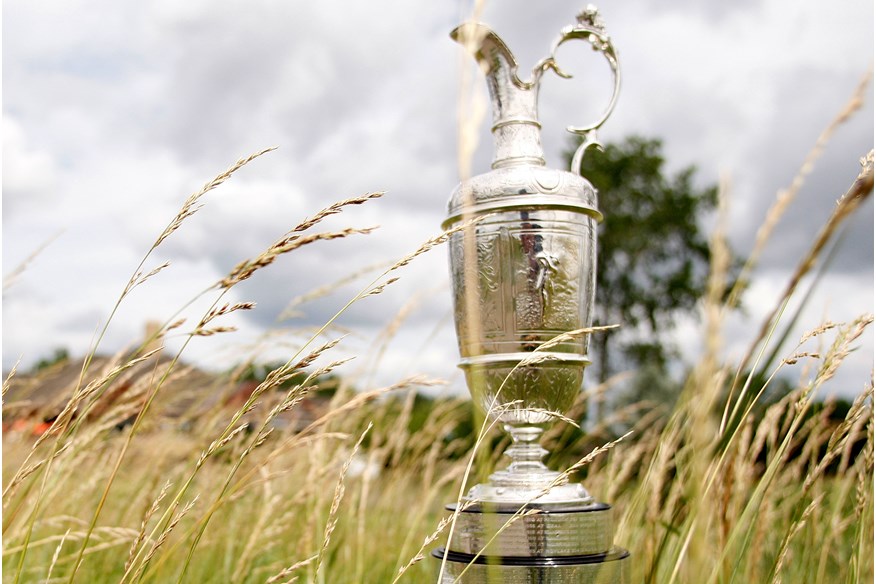
The Open originally awarded its winner with the Challenge Belt (1860-1870), but this was permanently given to Young Tom Morris after he won three consecutive tournaments.
It was replaced by the Gold Medal from 1872, which winners still receive, with the Claret Jug first introduced in 1873.
Victory also guarantees entry to Open Championships until the age of 60, and entry to the next ten Opens, even if over the age of 60. The winners also gain entry to the next five Masters, US PGA, and US Open tournaments along with five-year membership to both the DP World Tour and PGA Tour.
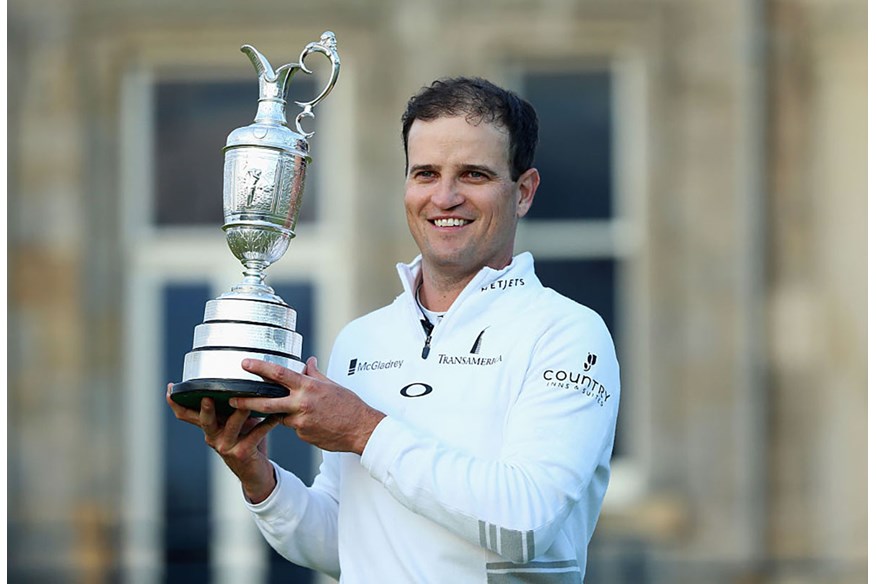
Victory also comes with a place in the next playing of the WGC Invitational, and WGC-HSBC Champions, the next five years of The Players Championship, and the five invitational tournaments (Genesis Invitational, Fort Worth Invitational, Arnold Palmer Invitational, RBC Heritage, and Memorial Tournament) on the PGA Tour.
Lifting the Claret Jug also ensures an automatic invitation to three of the five senior majors once the winner turns 50, with a one-year invitation to the US Senior Open and a lifetime invitation to the Senior PGA Championship and Senior Open Championship.

Then there are the 100 Official World Golf Ranking points and the 600 FedEx Cup points. What do points make? Well, in this case, the chance to get a headstart at the big-money Tour Championship and FedEx Cup finale and a lot of clout when it comes to renegotiating contracts with sponsors.
But it’s not just the winner who benefits at The Open.
The runner-up receives a silver salver and $$1,708,000 in prize money. The top four players, including ties, all guarantee themselves a place in the field at next year’s Masters, while the top 10 players will be in the field for The Open again next year.
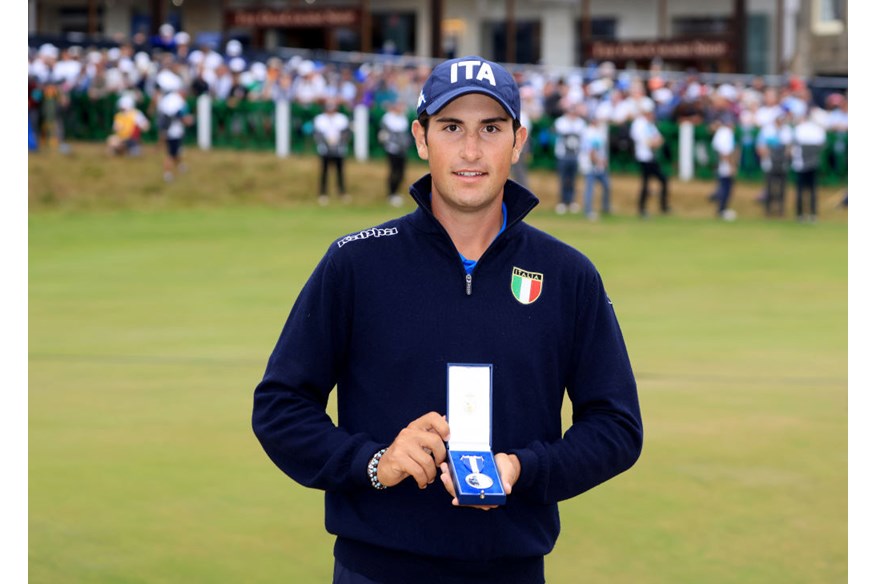
While amateurs playing The Open cannot receive prize money, there’s still plenty to play for. Since 1949 the leading amateur golfer after the final round has received the Silver Medal and, since 1972, any other amateur who competes in the final round receives the Bronze Medal.
The Professional Golfers’ Association (of Great Britain and Ireland) also marks the achievements of its own members in The Open with the Ryle Memorial Medal awarded to the winner if he is a PGA member.
Since 1966 the Braid Taylor Memorial Medal has been given to the highest finishing PGA member and, since 1924, the Tooting Bec Cup has been given to the PGA member with the lowest round in the tournament.
While amateurs playing The Open cannot receive prize money, there’s still plenty to play for. Since 1949 the leading amateur golfer after the final round has received the Silver Medal and, since 1972, any other amateur who competes in the final round receives the Bronze Medal.
The Professional Golfers’ Association (of Great Britain and Ireland) also marks the achievements of its own members in The Open with the Ryle Memorial Medal awarded to the winner if he is a PGA member.
Since 1966 the Braid Taylor Memorial Medal has been given to the highest finishing PGA member and, since 1924, the Tooting Bec Cup has been given to the PGA member with the lowest round in the tournament.
How has The Open’s prize money changed over the years?
1860-1862: No prize money
Willie Park Snr in 1860 and Old Tom Morris’ wins in 1861 and 1862 were rewarded only with the Challenge Belt.
1863: Total purse – £10
A single tenner was shared equally among eight players in the 14-man field.
1864: Total purse – £15
Old Tom Morris earned £6 with his victory; 40% of the £15 total fund.
1893: Total purse – £100
The prize fund fluctuated throughout the 1870s and 1880s, but hit £100 for seven Opens from 1893. A total of £125 was then available at every Open in the following decade, with £50 going to the Champion each year at the start of the 20th century.
1931: Total purse – £500
As Champion at Carnoustie in 1931, Tommy Armour bagged a fifth of the prize fund. This would remain the case at every Open up to and including 1939, when WWII intervened.
1946: Total purse – £1,000
The first Open after WWII was won by Sam Snead and doubled the amount that was on offer in each of the nine previous events.
1965: Total purse – £10,000
The appearance of Arnold Palmer saw the purse increase quickly. Peter Thomson bagged £1,750 for his fifth win, in 1965, more than twice as much as he earned for his first in 1954.
1977: Total purse – £100,000
The first Open to offer a six-figure purse, with Tom Watson winning £10,000 after the ‘Duel in the Sun’.
1993: Total purse – £1,000,000
By the time Greg Norman won his second Open at Royal St George’s, the pot had hit a million. Norman’s share was £100,000.
2011: Total purse – £5,000,000
Though the purse had gone up five-fold by 2011, the winner’s cheque rose by nine; Darren Clarke walked away with £900,000.
2017: Total purse – $10,250,000
Jordan Spieth received his winner’s cash in US dollars rather than sterling for the first time, bringing it into line with the other Majors. The £7.8m was a substantial increase on the previous year.
2021: Total purse – $11,500,000
Four years later, another sizeable spike: Champion Collin Morikawa became the first winner to take home more than $2m in winnings.
2022: Total – $14,000,000
The purse increases by a whopping 22% for the 150th Open at St Andrews with the winner receiving $2.5m, almost $500,000 more than Morikawa received for his win at Royal St George’s.
2023: Total – $16,500,000
A further 16% increase on 2022’s record pot meant the total fund had almost doubled since 2016. The winner received $3m, a $500,000 increase on the previous year.
